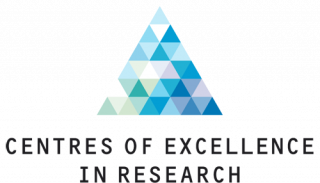Historians have increasingly striven to understand war from the standpoint of human experience in recent decades. The emotional, psychological, and deeply traumatic experiences of people caught up in violence have become focal points of historical research, particularly concerning conflicts like the World Wars of the 20th century. This workshop discusses the study of war experiences through digital sources and methods.
War experiences have been analyzed most often by closely examining the fates of individual people and their ego-documents like letters, diaries, and poems, but digitalization has opened possibilities to explore war from a broader perspective. The digitization of archives has made it easier to access millions of wartime publications, such as newspapers and parliamentary records, now only a few clicks away. Additionally, recent advancements in handwritten text recognition are making historical ego-documents, such as letters, digitally accessible. Transforming documents into data broadens the scope of research from traditional close reading to text-mining methods and creates new opportunities to present war on digital and visual platforms.
What are the implications of digitalization for the study of war experiences? Are individual experiences at risk of being neglected in digital, data-driven research? Or can digitalization offer historians new ways to tell stories and convey experiences of war? It is important to emphasize that experiences should not be understood only as narratives of, or written by, individual people. Experience can also be understood more broadly as a mediating sphere between the macro and micro levels where different impulses (personal, social, cultural, and political) merge to form meanings, concepts, actions, and practices.
Programme
Thursday 23 May 2024
9.30-10.15 Opening and introduction (Ilari Taskinen)
10.15-11.45 Session 1: Egodocuments and the transformation of archives in the digital age (Chair: Risto Turunen)
Christelle Timis (University of Luxembourg): WARLUX Project – Using Transkribus to Study War Experiences in Luxembourg
Milan van Lange (NIOD, the Netherlands): Hearing Voices in the Archive: Wartime Correspondence and the Road to Expanded Source Criticism
Arvid de Raaij (NIOD, the Netherlands): Between Inclusion and Exclusion: data-driven keyword generation for machine-readable egodocuments
11.45-13.00 Lunch break (Restaurant Aleksis)
13.00-14.30 Session 2: Constructing databases for the study of war experiences (Chair: Milan van Lange)
Franziska Quaas (University of Marburg): Developing new digital methods for exploring practices and experiences of violence in medieval wars
Jennifer Ehrhardt & Felix Luckau (University of Giessen): Literary Texts as Textual Witnesses for the Experience of Persecution – A Database Project on Early Texts of Holocaust Literature 1933–1949
Damien Accoulon (University of Orléans): Revisiting the war experience of Great War aviators in the digital age
14.30-15.00 Coffee break
15.00-16.30 Session 3: Interpreting individual experiences (Chair: Nina Janz)
Aytac Yurukcu (University of Eastern Finland): An Imperial War Experience of the Grand Duchy of Finland: Perceptions and Voices of the Finnish Media, People, and Soldiers on the Russian-Ottoman War in 1877-1878.
Larry McDonnell (Iowa State University): Soldiers as Killers in the American Civil War: Digital Sources and the Construction of Social Identity
Benjamin Ragan (USA): Ghosts in the Irish Military Archives: How Digital Methods Unexpectedly Yielded Thousands of Supernatural Memorates from Operational Accounts of the Irish Revolution
17.30- Dinner (Restaurant Haarla, Pellavatehtaankatu 14)
Friday 24 May 2024
9.30-11.30 Session 4: Challenges of digital data (Chair: Ville Kivimäki)
Tinashe Mushakavanhu (University of Oxford): Mapping a textually dispersed history: Notes from a digital fieldworker
Nina Janz: Multilingual Letters of War (NIOD, the Netherlands): Exploring Waffen-SS Volunteers’ Experiences Through War Correspondence
Jakub Gałęziowski (University of Warsaw): Family secrets after digital turn: facing difficult pasts through digitized written and oral sources.
Risto Turunen (University of Jyväskylä): Mining experiences and emotions from digital war letters
11.30-13.00 Lunch break (Restaurant Aleksis)
13.00-14.30 Session 5: Experiencing war through digital mediums (Chair: Ilari Taskinen)
Anna Elisabeth Gehl (Freie Universität Berlin): The Women in my Pocket: Haptic and Digital Immersion with the (Ego) Documents of Female Medical Personnel who Worked on the Western Front (1914-1934)
Cringuta Irina Pelea (Titu Maiorescu University): Genocide Narratives and Testimonies of War Survivors through AI, Holographic and Immersive Technologies
Antti Hannunen (Vapriikki Museum): The Tampere 1918 Civil War Museum – a digital museum project
14.30-14.45 Coffee break
14.45-15.30 Final discussion (Nina Janz, Milan van Lange, Ilari Taskinen)

